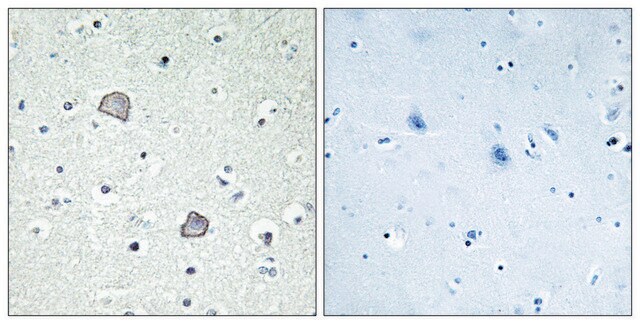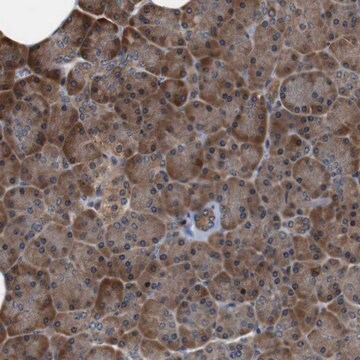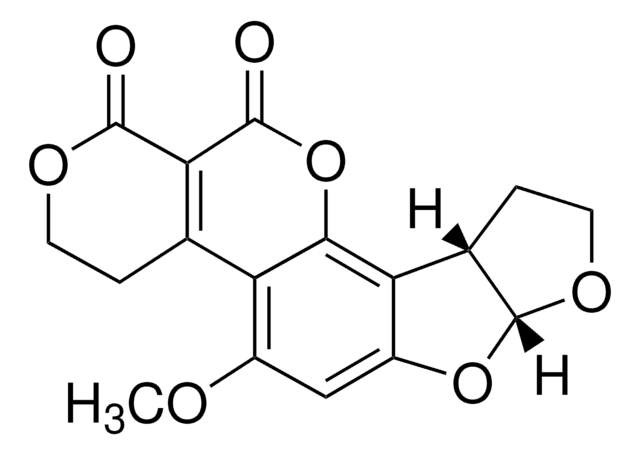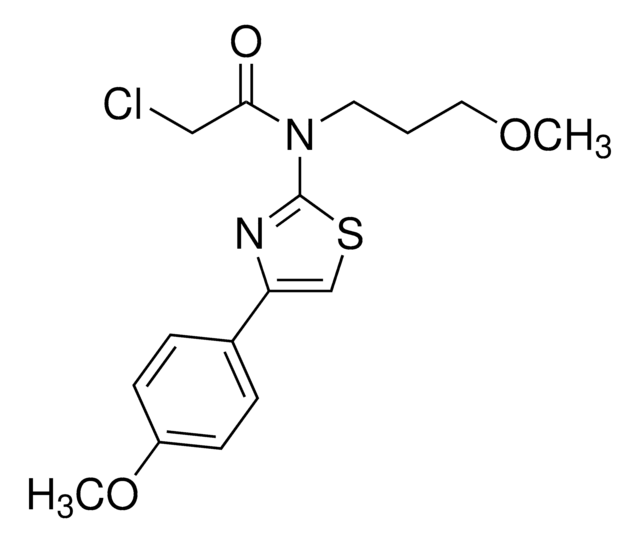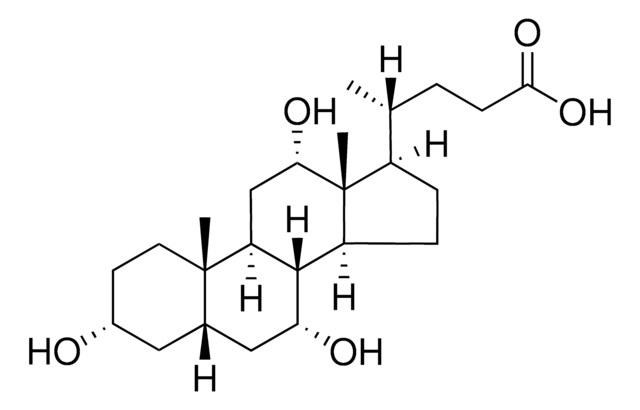おすすめの製品
由来生物
rabbit
品質水準
結合体
unconjugated
抗体製品の状態
IgG fraction of antiserum
抗体製品タイプ
primary antibodies
クローン
polyclonal
フォーム
buffered aqueous solution
分子量
antigen ~50 kDa
交差性
human, rat
テクニック
western blot: suitable
UniProtアクセッション番号
輸送温度
dry ice
保管温度
−20°C
ターゲットの翻訳後修飾
unmodified
遺伝子情報
human ... LPAR1(1902)
rat ... Lpar1(116744)
関連するカテゴリー
免疫原
ヒトEDG-2/LPA1のアミノ酸328-344に相当する合成ペプチド。
アプリケーション
Anti-LPA1, C-Terminal antibody produced in rabbit is suitable for western blotting at a working dilution of 1:1000 using rat brain microsomal fraction.
生物化学的/生理学的作用
Lysophosphatidic acid receptor 1 (LPA1) is a protein encoded by the LPAR1 gene in humans. It is constitutively localized in the nucleus of mammalian cells and may be involved in regulating intranuclear protein phosphorylation and signalling. LPA1 is differentially expressed in androgen-insensitive and LPA-responsive cells. It is not expressed in androgen-dependent and LPA-resistant cells.Its expression is significantly higher in the cancer compared with the benign tissues and may possibly act as a drug target to interfere with progression of prostate cancer. LPA1 helps in promoting cell proliferation, survival and migration by acting on cognate G protein-coupled receptors.
物理的形状
Solution in PBS with 0.08% sodium azide
免責事項
Unless otherwise stated in our catalog or other company documentation accompanying the product(s), our products are intended for research use only and are not to be used for any other purpose, which includes but is not limited to, unauthorized commercial uses, in vitro diagnostic uses, ex vivo or in vivo therapeutic uses or any type of consumption or application to humans or animals.
適切な製品が見つかりませんか。
製品選択ツール.をお試しください
保管分類コード
10 - Combustible liquids
Goetzl, E., et al.
Immunology, 162, 2049-2049 (1992)
Rishu Guo et al.
Endocrinology, 147(10), 4883-4892 (2006-07-01)
The bioactive phospholipid lysophosphatidic acid (LPA) promotes cell proliferation, survival, and migration by acting on cognate G protein-coupled receptors named LPA(1), LPA(2), and LPA(3). We profiled gene expression of LPA receptors in androgen-dependent and androgen-insensitive prostate cancer cells and found
Catherine M Waters et al.
The Biochemical journal, 398(1), 55-62 (2006-05-24)
We show that LPA1 (lysophosphatidic acid receptor-1) is constitutively localized in the nucleus of mammalian cells. LPA1 also traffics from cell membranes to the nucleus in response to LPA (lysophosphatidic acid). Several lines of evidence suggest an important role for
N Fukushima et al.
Proceedings of the National Academy of Sciences of the United States of America, 95(11), 6151-6156 (1998-05-30)
Extracellular lysophosphatidic acid (LPA) produces diverse cellular responses in many cell types. Recent reports of several molecularly distinct G protein-coupled receptors have raised the possibility that the responses to LPA stimulation could be mediated by the combination of several uni-functional
E J Goetzl et al.
FASEB journal : official publication of the Federation of American Societies for Experimental Biology, 12(15), 1589-1598 (1998-12-05)
The lysophospholipid (LPL) mediators lysophosphatidic acid (LPA) and sphingosine 1-phosphate (S1P) are generated by enzymatic cleavage of stores of glycerophospholipids and sphingomyelin, respectively, in membranes of stimulated cells. LPLs are albumin bound, distributed widely in mammalian tissues, and increased in
ライフサイエンス、有機合成、材料科学、クロマトグラフィー、分析など、あらゆる分野の研究に経験のあるメンバーがおります。.
製品に関するお問い合わせはこちら(テクニカルサービス)